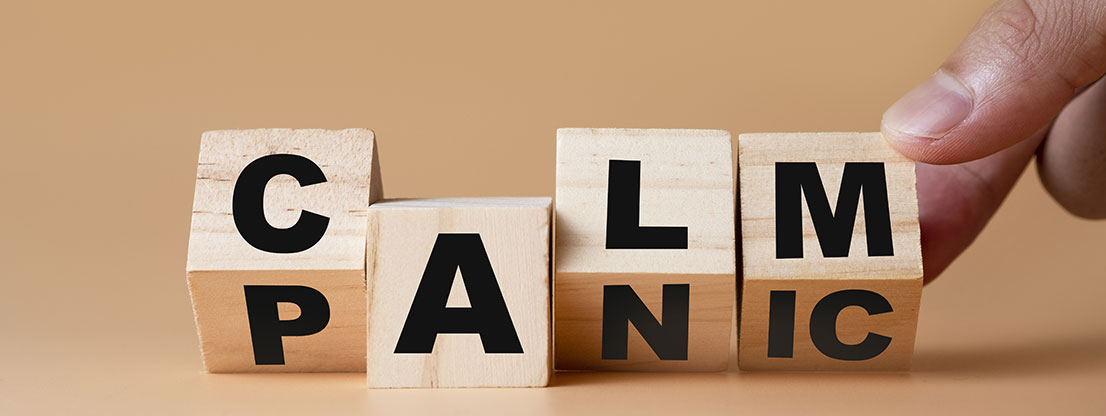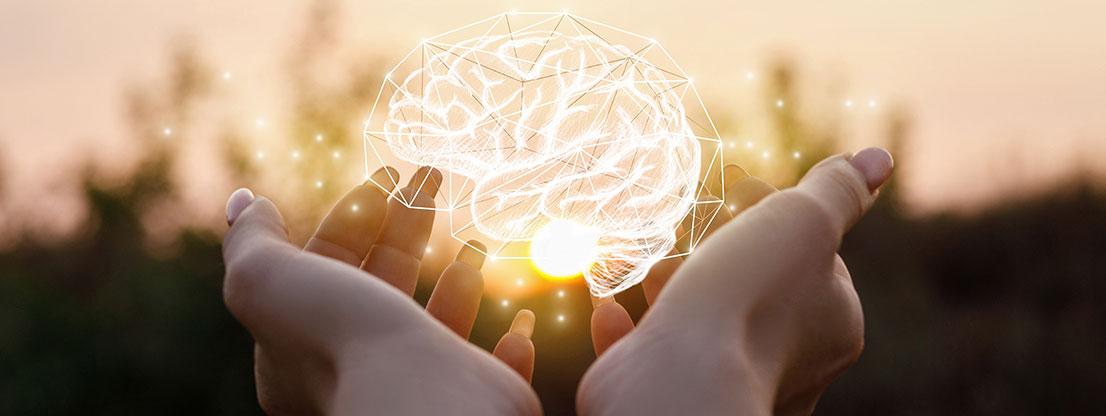Meditation is not without reason associated with spirituality and religious practices. The history of meditative exercises reaches far back in time. Thousands of years ago, meditation was already practised in the most various places on earth. It is striking that meditation plays a role not only in Hinduism and Buddhism, but also in Christianity, Judaism and many other religions. Practices that have proven themselves over such a long period of time all over the world do not raise the question whether they are good for anything – but rather: for what. What does meditation do for me? Can I meditate properly if I don’t feel religious or spiritual? And what happens to me? These are the questions we will explore in our article.

Is meditation always spiritual?
Meditation does not have to be spiritual. For example, the mindfulness meditation teachings of Jon Kabat-Zinn, a professor emeritus of the University of Massachusetts Medical School, are well known. In the “Mindfulness-Based Stress Reduction” programme he developed, he combines various methods such as the so-called body scan, sitting meditations and practices from Hatha Yoga to create an attentive state of mind in which one’s own life, thoughts and sensations are perceived clearly and mindful. [1]
Besides this increased mindfulness, there are a number of other purposes for which meditation can be helpful: For example, you can use meditation to relax, to fall asleep or to concentrate better. And meditation has a number of remarkable medical effects, some of which we would like to introduce to you.

Meditation against fear and pain
Studies show that people with meditation experience are more relaxed about fear and pain. Their brain’s central pain processing system deals with negative feelings differently. Chronic pain itself does not necessarily get less, but because it is fundamentally different, it is less likely to lead to typical symptoms like anxiety or depression.
Spontaneous pain stimuli also throw meditation-experienced people off track less: a study showed that the blood supply to the brains of people with only five months of meditation experience is up to 50 percent lower when experimental stimuli are added. This indicates that the impending stimulus is coupled with significantly less expectation anxiety and stress for them. In addition, the electrical activity of certain brain regions shifts increasingly to the left part of the brain after intensive meditation training over several weeks – an indication that the brain can handle negative emotions more efficiently and quickly with the appropriate exercise. In other words, meditation makes you more balanced and helps you to deal with fear and frustration in an “emotionally intelligent” way. [2]

Meditation for relaxation – and for a better cooperation
The intensive study of a single thing, as used in many meditation techniques, has a proven relaxing and beneficial effect on the body. During a longer meditation your breath and heart go more slowly, your blood pressure drops and your metabolism calms down. [3]
Regardless of the method used, one effect is particularly remarkable: meditation improves interpersonal relationships. 4] No wonder, because the more relaxed we are with ourselves and our everyday problems, the more sociable we are in social contact. Moreover, regular meditation in itself can make us more compassionate and altruistic, as further research shows. Not only our fellow human beings benefit from our strengthened empathy, but also we ourselves: After the study, the test persons reported greater well-being, less stress and a better general mood. [5]
If you would like to test the relaxing effect of meditation, you will find a short, practical introduction in our article 4 breathing techniques for relaxation.

Less stress through meditation
Meditation exercises such as those from the MBSR programme can reduce stress and have a positive influence on one’s own perception, even without a basic spiritual attitude: physical sensations, emotions and thoughts are observed in order to recognise and break up rigid reaction patterns. For this reason, meditative exercises are now used in many places to supplement conventional therapy. The newly acquired stress resistance can also be demonstrated in the brain: In cases of permanent stress, the grey matter in the hippocampus can be damaged by an increased cortisol level in the blood. In one study, however, scientists found that after only eight weeks of meditation training for 45 minutes a day, their test subjects showed a clear increase in the concentration of this substance – the meditations had made them more resistant to stress. [6]

Strengthening the immune system through meditation
There is even evidence that meditation has a positive effect on certain factors of the immune system. For example, regular meditation can improve inflammation in the body, the cell-mediated immune response and enzyme activity in relation to cell ageing, as scientists found out in a comprehensive meta-study. However, the strength of the effect is strongly linked to how often and how intensively the volunteers meditated. This means that it is not yet possible to make any reliable statements about the exact interaction between the immune system and meditation practice. [7]
So there is still plenty of research to be done, but the basic tone remains the same: Regular meditation can support and enrich our everyday life in many ways.

Summary: What does meditation really do for you?
In this article we have shown you that meditation has its roots in religion, but it does not have to be ideological or spiritual for it to be beneficial. Meditation helps against stress, fear and other negative feelings, improves our social competence and lets us deal with our problems in a more relaxed way. Some studies even suggest that it can strengthen our immune system.
Would you like to try meditation, but don’t know how to begin? In our series of articles “Meditation for Beginners” you will find suggestions for your first steps. Or do you want to start right now? Then try it with our sonamedic App. Here you will find a wealth of guided meditations of about 10 minutes in length, which you can easily try out: Put in your headphones, find a quiet place and start. We wish you much joy with your first meditation!
Sources
[1] Kabat-Zinn, Jon: Was Achtsamkeit ist. Eine Einführung in die MBSR-Praxis. Datum des Zugriffs: 03.11.2020, Online.
[2] Albrecht, Bernhard: Die Wissenschaft vom Hier und Jetzt. Datum des Zugriffs: 03.11.2020, Online.
[3] Techniker Krankenkasse: Meditieren lernen (1/4). Datum des Zugriffs: 03.11.2020, Online.
[4] Sedlmeier, Peter: Meditation und Wissenschaft in: Forschung & Lehre, 9/2016, Online.
[5] Lenzen, Manuela: Die Neurowissenschaft der Meditation. Datum des Zugriffs: 03.11.2020, Online.
[6] Ott, Ulrich: Warum Meditation? Datum des Zugriffs: 03.11.2020. Online.
[7] Hacke, Daniela: Meditieren für ein starkes Immunsystem. Tiefenentspannung aktiviert Selbstheilungskräfte. Datum des Zugriffs: 03.11.2020, Online.




